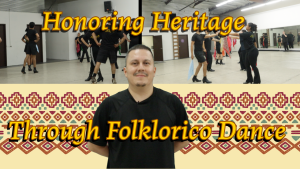The Write Stuff
October 15, 2003
We see them every day, but many students have no idea that quite a few professors at Sacramento State have made their mark in the literary world. And they’re not just contributing to scholarly journals – professors have written about everything from mysticism to child education..
Dr. Ronald Tanaka, who has written several poetry collections, thinks his writing is a part of his responsibility as an educator, rather than a constant quest for money and recognition – even though he has won a few national book awards. .
“My job as an artist is to contribute to the overall wealth and advancement of our society,” Tanaka said. .
With that goal in mind, he has launched several Web sites that make his work and ideas available to the masses – free of charge, even though he has put up to $9,000 of his own money into the creation of each site..
Like many other professors at Sac State, Tanaka does not usually assign his own books for his classes – the last time he did so, for a graduate seminar in 1979, students complained. Such criticism doesn’t seem to bother Tanaka, though: He says his function “is to engage society at all levels.”.
Dr. Maria Jaoudi, a humanities and religious studies professor, has written books exploring mysticism and cultural, spiritual bridges between religions..
Like Tanaka, Jaoudi doesn’t insist on making her students buy her books, although one of her texts is recommended for a mysticism course she teaches..
Jaoudi hopes that her texts can open her readers’ minds to new religions and understanding. “Going deeper into different religions, you start to see bridges (between them). I think the only way we can have peace is if people come to the table and look at the bridges, rather than the differences,” Jaoudi says. .
She thinks that writing books about the subjects she teaches helps her as a professor. “We have a policy for all faculty that they should be active in their discipline, so I’m sure it’s helpful. It enriches your teaching because you’re bringing all your research and experience into your teaching,” Jaoudi said..
Dr. Nancy Cecil, an education professor, thinks that being a published author helps her teaching. Her books on children’s education – as well as her many education journal articles – “informs (her) instruction,” Cecil said. “I think basically that people respect the fact that you’ve written texts.” .
Like Tanaka and Jaoudi, Cecil doesn’t put a lot of pressure on students to buy her books, especially when they’re expensive. “Some of them I don’t ever use in a class because they’re too expensive. I tend to go with publishers that tend to keep their prices down,” Cecil said. Her dedication to teaching comes through in her texts, as well as her reason for her interest in education: the variety. “Everything that you are, you can use in the classroom. It seemed like a perfect blend for me,” Cecil said. .
Dr. William Vizzard, chair of the department of criminal justice at Sac State, has a strong background in law enforcement, with jobs in the Fresno County Sheriff’s Department and with the Bureau of Alcohol, Tobacco and Firearms. He is also known for his views on gun control and criminal justice, as expressed in two major books and the many articles he has written for various journals. Like most professors, he rarely assigns his own texts to a class, largely because some are inappropriate for certain subjects. .
Vizzard said that the fact that he is a published author gives him “some standing with some faculty,” and that his texts probably helped him to get his first associate professor title at CSUS. .
He also said that being published in highly-regarded journals sometimes carries more prestige than having published texts. However, he says, his students usually don’t know that he has written books, a situation noted by several other faculty authors. .
“It’s one of the last things (students) consider,” Vizzard said. “Every once in a while, a student finds out and is impressed.” .
English professor Doug Rice is well-known in literary circles for his controversial books, but Rice says the controversy surrounding his work is more annoying than rewarding. .
“It’s a total misrepresentation of my work,” Rice said. .
He thinks that most readers look at his work on the surface level, and thus completely get the wrong idea about his writing. .
Rice said that although students who do understand his work take classes of his, the majority of students who seek out his classes after hearing about his experience misinterpret his books, which troubles him. .
Rice is currently working on two books: A spiritual memoir and another novel.There are authors in many departments at Sac State. .
For the most part, their past literary achievements enrich and strengthen their instruction, allowing students an invaluable look into their experiences.






















































































































